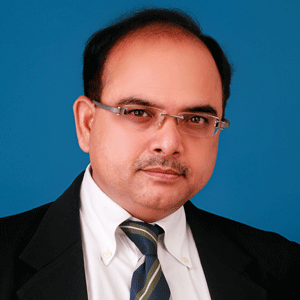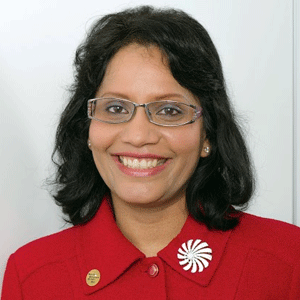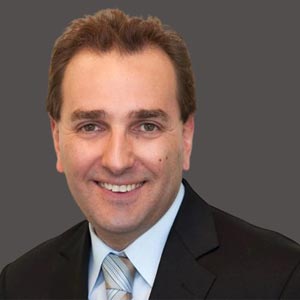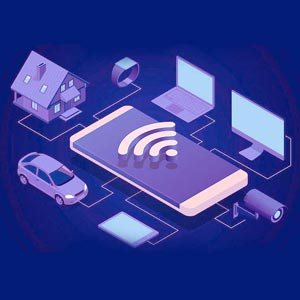THANK YOU FOR SUBSCRIBING

Digital Technology in Healthcare: Enabling Paradigm Shift in Healthcare Delivery
Dr. Amit Varma, Co-Founder & Managing Partner, Quadria Capital

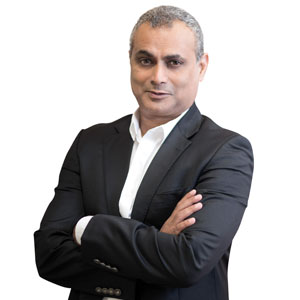
Dr. Amit Varma, Co-Founder & Managing Partner, Quadria Capital
Globally, the healthcare ecosystem is witnessing a paradigm shift in the way the services are being delivered and consumed. With the advent of technology and data, healthcare landscape is witnessing the rapid emergence of new businesses which are focused on delivering affordable patient-centric healthcare solutions with the potential to be easily scaled up. In the last two years alone, over 500 start-have ups emerged in the healthcare sector in India itself, with their presence spanning across the entire patient lifecycle— from engaging and enrolling the patient, to treating and managing them. This emergence of new age healthcare businesses is being driven by the underlying need to provide empowerment, convenience and enhanced experience to the patients; and the proliferation is fuelled by technology and entrepreneurship.
To simplify the entire understanding of the changes in healthcare ecosystem, we can look at three convergent forces which are re-shaping the industry and are opening-up new avenues for players. These transformative forces are causing industry players to increasingly focus on the predicative, preventive, personalized, and participative form of treatment, and bring in shifts in the design, delivery, and financing of healthcare and to the healthcare experience.
The first major force driving the evolution is the emergence of e-consumer—a consumer who is more empowered, equipped, enabled, and engaged in the healthcare ecosystem. The broad reach of low-cost, fast mobile broadband, smart devices and rapid uptake of new technologies deliver tools that are redefining how consumers manage their health and engage with care systems. A diverse range of providers are now shifting from being the ‘ship’s captain’ to the ‘navigator’ or expert advisor. A significant catalyst for this change is an engaged and participatory patient; one that assumes a role as an equal partner in their healthcare experience and are viewing health as general wellness. These new-age patients are deciding on the need, timing and form of information, and interaction with the eco system. Consumers are now empowered with the tools of participation to make smarter choices and pursue responsible behaviors which is creating bottom-up levers for changes which are re-shaping the healthcare industry.
Powerful elements such as social networks, innovation, technologies, data analytics, new industry players and a maturing consumerism have set the ground for a revolution in the global healthcare system
Offerings like DIY diagnostic tests, analytics tools like Oracle Health Analytics, medical information and social websites like WebMD are at the forefront of this theme. These digital technologies are providing the long-awaited tools needed to build something new—a viable collaborative partnership achieved via personal health technologies. These are services related to daily activities tracker, wearable & mobile technologies, monitoring, inducements and incentive models, coaching tools, and any services or products that are providing deeper insights and individualized mentoring to activate users. The most prominent product under this theme is the wearable technology product, which is poised to be a US$ 34 billion market, globally, by 2020.
The second underlying force is the integrated approach to deliver services through personalized and distributed model of care. Novel business models that blend healthcare expertise with high-tech skills, connected technologies and deep consumer insights are driving the innovation, and are leading the shift from legacy ways of delivering and paying for care. Service providers are now keeping the consumer at the centre to personalize and enhance the quality of delivery. e-ICU, a concept that is growing particularly in India, and could be exported to regions with weak healthcare supply infrastructure, is one of the many examples of leveraging clinical expertise, processes, and high-end technology for the benefit of the hospital as well as patients.
The third force which is bringing the transition is the introduction of the supplementary treatment solutions wherein healthcare providers have innovated their toolkit to provide more precision-based services. Providers have armed themselves with upgraded technology and precision tools to provide a high level of care and optimal solution to the end consumer. From genomics to telemedicine to 3D bioprinting, technologies are now being used to revolutionize an industry and make us all healthier. The increasing number of applications of 3D printing techniques in the healthcare industry, ranging from orthopedics to dental to many more, is strong evidence that such technologies are here to stay. In the operating rooms, virtual reality-based medical solutions allow physicians and surgeons to offer less invasive and more effective treatments. Robotic surgeries, on the other hand, have made complex procedures easy to perform with accuracy and assistance through minimally invasive surgeries. This has enabled doctors to take actions outside of their expertise. Emerging technologies like these are disrupting the delivery of care and will lead to a complete reimagining of health and healthcare.
Summing up, powerful elements such as social networks, innovation, technologies, data analytics, new industry players and the most powerful of all, a maturing consumerism have set the ground for a revolution in the global healthcare system, which will help transcend the advancement and reach in delivery services across the entire section of population. Soon, the delivery of healthcare may become as decentralized as retail shopping as we move "from a Blockbuster to Netflix" paradigm shift in the way we organize and maintain healthcare records, educate our clinicians, manage patient care, and monitor our own personal health. This change or evolution will be embraced by consumers, both urban and rural, providers, and government. So, it is timely to re-imagine healthcare with fresh eyes and begin the conversation about a radically different future.
Check this out: Top Healthcare StartupsWeekly Brief
I agree We use cookies on this website to enhance your user experience. By clicking any link on this page you are giving your consent for us to set cookies. More info
Read Also



